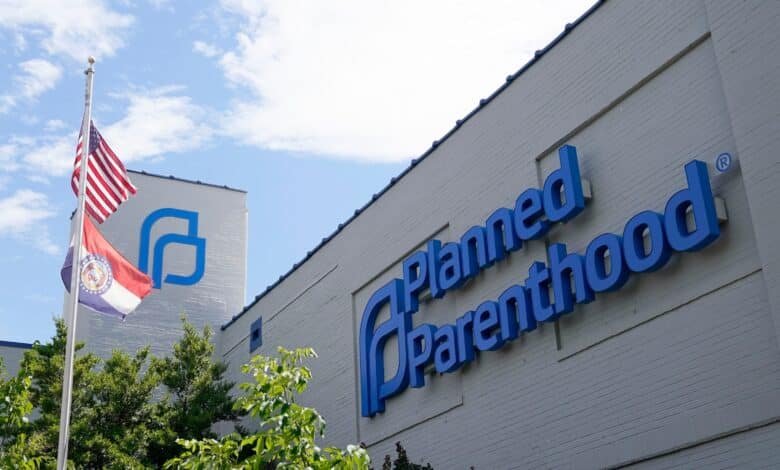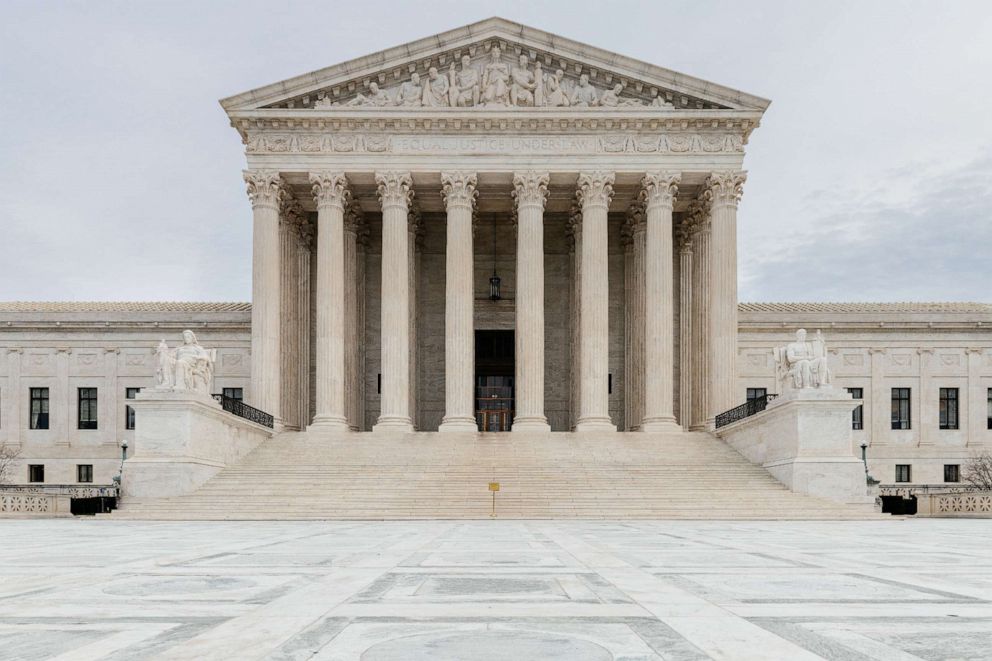The judges divided on “law” Medicaid to choose Planned Parenthood Clinicals

On Wednesday, the Supreme Court seemed to be strongly divided on the question of whether the individual beneficiaries of Medicaid have the right to continue a state on access to Planned Parenthood after the clinics were excluded from the coverage of the government’s health program.
The case has marked the first time that the judges largely envisaged the efforts of several conservative states to finance Planned Parenthood for its support for abortion.
In 2018, the Governor of South Carolina, Henry Mcmaster, a Republican, issued disqualifying executive decrees Planned Parenthood to receive Medicaid reimbursements for non -aborting services, such as cancer screening and contraception treatments.
The group said it has drawn 34% of its overall national income, or $ 699 million, government subsidies, contracts and Medicaid funds.
Julie Edwards, who suffers from type 1 diabetes and asked for medical care in a Planned Parenthood clinic in Columbia, in South Carolina, continued the state alleging a violation of the Medicare and Medicaid law, which guarantees the beneficiaries of Medicaid a “free choice of supplier” which is arranged and qualified.
“If the individual cannot continue, this provision will not make sense,” said Nicole Saharsky, the lawyer’s lawyer, in court during the oral arguments.
Each state has the discretion to determine which suppliers are “qualified”. The medical qualifications of Planned Parenthood doctors were not questioned by South Carolina. Instead, the state excluded clinics only as opposed to abortion.

In this June 24, 2022, photo file, Missouri and American flags fly outside Planned Parenthood in Saint-Louis.
Jeff Roberson / AP, file
Democratic judges of the Supreme Court seemed to be unanimously agreed that Edwards have the right to continue under the provision of the “free choice of the supplier”.
“A problem that motivated the Congress to adopt this provision was that the States limited the choices that people had. Some states said that only states facilities offered them.
“The state has the obligation to ensure that a person … has the right to choose their doctor,” said judge Elena Kagan. “This is what this provision is. It is impossible to say even the thing without using the word” reason “.
The state of South Carolina argued that federal law does not explicitly establish a “right” of individuals to continue on the availability of certain providers of Medicaid and that this could open the valves to disputes.
“To tell a state that you have the obligation to provide something is not the same thing to tell a state that an individual can continue,” said John Bursch, the state lawyer.
Several members of the Republican members of the Supreme Court seemed to be inclined to line up on the side of the South Carolina.
Brett judge Kavanaugh said there should be clear “magic words” in a law indicating a right to continue, suggesting that the language may not be clear in this case.
“We can imagine a written status as a compulsory individual advantage in the United States but which is not a right creation,” noted Judge Neil Gorsuch.
Judge Samuel Alito suggested that only the federal government could take measures against a state if it had violated the provision of the “free choice” of the Medicare and Medicaid law.
“This is the standard for the legislation on the expense clause,” he said, referring to the Partnership of Federal Staff in the administration of Medicaid.
Chief judge John Roberts and judge Amy CONEY BARRETT appeared by their more circumspect questions about their positions on the case.

An undated photo shows the building of the United States Supreme Court in Washington, DC
Garen Meguerian / Moment via Getty Images, Stock Photo
The results of the case could have a significant impact for the beneficiaries of Medicaid on a national level, the Planned Parenthood clinics which are based on federal funding and the anti-abortion defenders hoping that states will be more aggressive on the means of cutting funds.
“The beneficiaries of Medicaid are often confronted with significant obstacles to obtaining care, in particular in Southern Carolina. Twenty-five percent of state residents live in medically served areas,” the complainants of Planned Parenthood wrote in their High Court memory.
“”[Congress] Promulgated the disposition of free law to ensure that Medicaid patients, like everyone else, can choose their own doctor, “they added.” The congress specifically promulgated this provision in response to the efforts of certain states to restrict the choice of Medicaid patients. “”
While the federal law already prohibits any government funding for abortions, South Carolina maintains that it has the right to target funding without abortion to the abortion suppliers.
“Because the money is fungible, give Medicaid dollars to the abortion facilities releases their other funds to provide more abortions,” the state told court.
If the judges allow the pursuit to move forward, affirming the right to continue on the eligibility of a qualified medication supplier, Edwards and Planned Parenthood can continue to challenge the exclusion of the clinics of the state Medicaid program in a lower court.
If the judges rank on the state side, they would strengthen efforts to cut Planned Parenthood from government funding sources and effectively limit the number of providers available for the beneficiaries of Medicaid.
A decision in the case is expected by the end of the court’s mandate in June.





